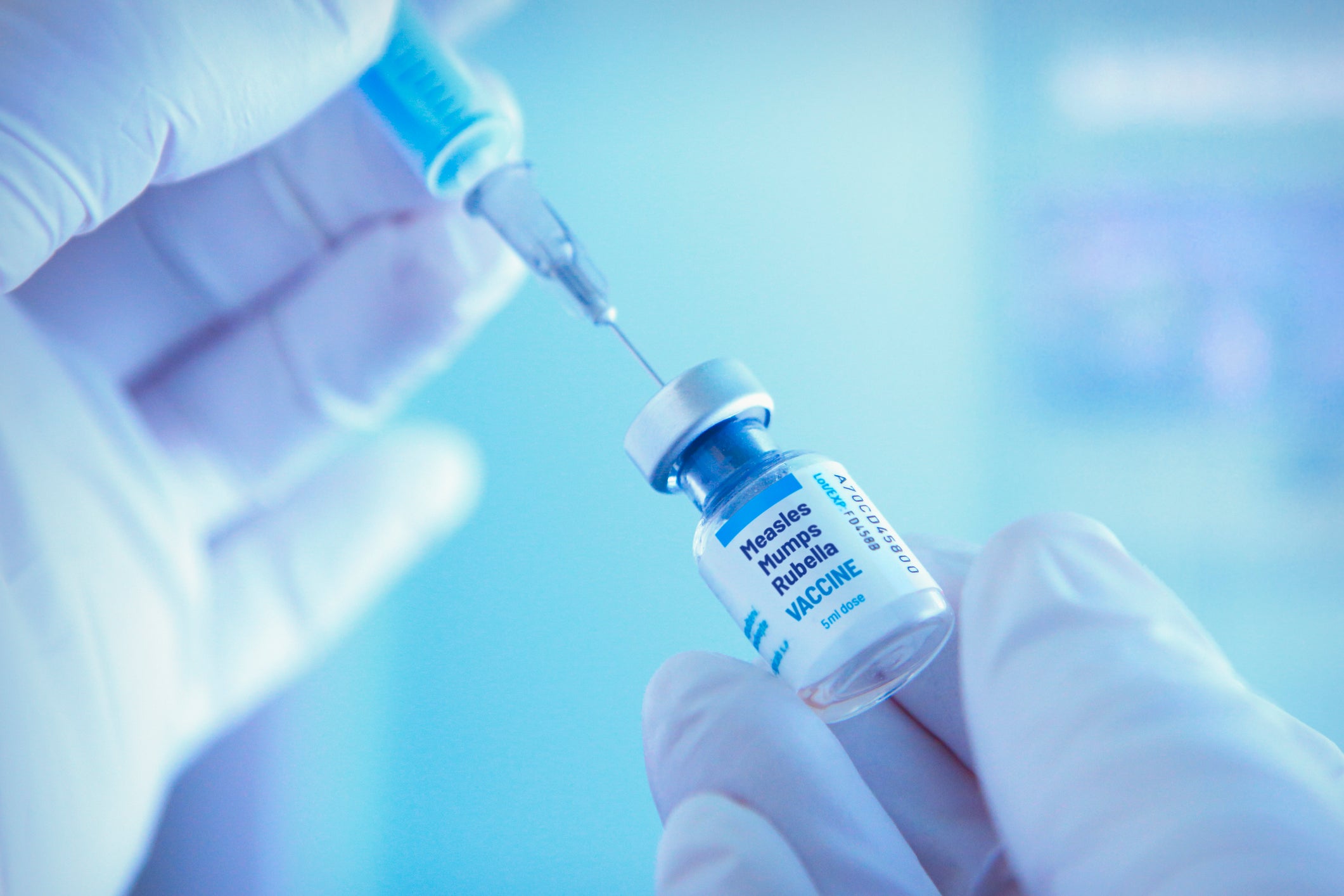A national information campaign is urgently needed to protect children from measles
Editorial: Victoria Atkins, the health secretary, must act to raise take-up of the MMR vaccine

Measles can kill. So far, there have been no deaths reported in the latest flare-up of the illness, which was more or less eliminated in this country eight years ago. But unless immunisation rates can be raised significantly, children will die. It is estimated that, since measles vaccinations were introduced in the United Kingdom in 1968, they have saved 4,500 lives.
That is why Professor Dame Jenny Harries, chief executive of the UK Health Security Agency, issued a “national call to action” this week. The outbreaks of 200 cases in the West Midlands and a further 100 suspected cases, plus a surge of cases in Greater London, are the inevitable consequence of vaccination rates falling as low as 81 per cent in some areas.
Official figures show that the take-up of the measles, mumps and rubella (MMR) vaccine nationally is at 84.5 per cent – its lowest point in more than a decade, and well below the target of 95 per cent.
The causes of this decline are complicated. The vaccine programme had recovered from the drop caused by false concerns over links to autism during the late 1990s, after the claims by Andrew Wakefield, the former doctor, were discredited.
But since the coronavirus pandemic, vaccine scepticism has reinfected the popular imagination. The Independent, which is proud of its role in exposing the fraudulent claims about MMR, takes the view that Covid vaccines are safe, and that their benefits hugely outweigh the risks of their shorter than usual trial period. But in any case, such doubts as there are about Covid vaccines cannot undermine the safety of MMR, which has been deployed and studied intensively for so much longer.
Unfortunately, pandemic-inspired vaccine scepticism has interacted with a specific problem, in that the usual MMR vaccine contains a pork derivative that is unacceptable to some Muslims. According to Dame Jenny, this is a significant contributor to the low take-up of the vaccine in the West Midlands, where a sustained effort is needed to make people aware of the non-porcine MMR vaccine that is available.
These problems have interacted with a third factor, which is that high levels of vaccine take-up are hard to sustain when an illness is rare. Major outbreaks of measles have been relatively unusual, which leads to complacency. As Dame Jenny said: “It’s quite common with vaccination programmes that when the risk is perceived to have gone away, then the concern to get vaccinated may drop off and so one of the reasons for flagging this today is to remind people that cases are still out there. This is a serious illness.”
Not only is it a serious illness – it is completely preventable. In 2016, the UK was declared measles-free. It did not last, and in recent years cases have been rising.
That is why Victoria Atkins, the health secretary, needs to put the government’s weight behind a national information campaign to make three simple points: measles is deadly; the MMR vaccine is safe; and there is a version that is pork-free.
There is plenty of evidence that people, when they realise that their health or that of their children is at risk, become open to scientific and factual persuasion. In the early stages of the coronavirus pandemic, for instance, opinion polls in France suggested widespread doubts about the effectiveness of Covid vaccines – but in the end, take-up rates in France were pretty much the same as in the rest of Europe.
But in the case of measles, it requires the government to deploy the soft power of the NHS, most urgently in England but across the UK, combined with advocates trusted by the target audiences to raise awareness of the protection afforded by the MMR vaccine. Children’s lives depend on it.
Join our commenting forum
Join thought-provoking conversations, follow other Independent readers and see their replies
Comments
Bookmark popover
Removed from bookmarks